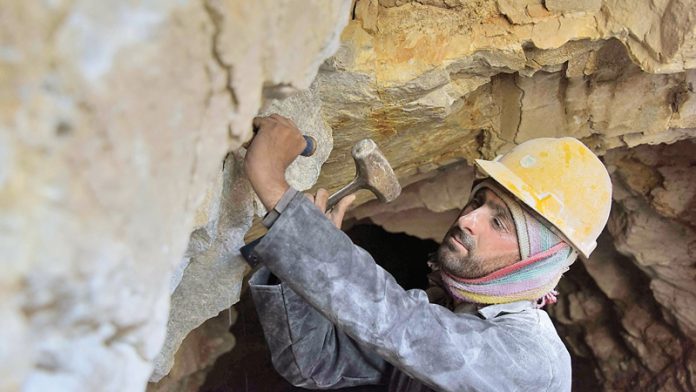ISLAMABAD: The Planning Commission on Wednesday organised a consultative session at the Islamabad Chamber of Commerce and Industry to get the input and proposals of the business community with regard to a new “mineral policy” in order to develop the mineral sector on modern lines.
Planning Commission (Private Sector Development and Competitiveness) Member Dr Syed Akhtar Hussain Shah, Ministry of Planning Deputy Chief Riaz Sahito, and Khyber Pakhtunkhwa’s Small and Medium Enterprises Development Authority (SMEDA) General Manager Javed Iqbal Khattak were also present during the session.
Speaking on the occasion, Dr Syed Akhtar Hussain Shah said that the government wanted to develop the mineral sector on modern lines, as the sector has the potential to create new jobs and enhance exports.
He said the new mineral policy would envisage many interventions, including estimation and mapping of mineral reserves with scientific methods, provincial mineral policies, rules, one window facility, fixation of royalties and duties.
“It would also introduce “mine magistrates” in mineral-rich areas for speedy disposal of disputes, development of mines access roads, provision of basic facilities like electricity, water, establishment of common facilitation centers, establishment of export processing zones, specific banking products for import of machinery and training facilities,” he added.
Shah said the government wanted to develop new mineral policy in consultation with all stakeholders and the consultative session at ICCI was a part of that process.
“After a thorough study of primary and secondary data and consultations with key stakeholders, a draft framework of mineral policy has been developed and the community should provide input to further refine it,” he added.
KP SMEDA General Manager Javed Iqbal Khattak, in his address, gave a detailed presentation on the draft framework of the new mineral policy.
He said there were 92 known minerals in Pakistan, including chromite, copper, gold, iron ore, lead-zinc, coal, gypsum, gemstones, marble and granite, out of which 52 were being exploited commercially.
However, he added, the annual production of minerals was just 2-3 per cent of the total reserves, which showed the huge untapped potential of the sector.
He said 5,000 mines were in operation and 50,000 SMEs were engaged in the mineral sector, providing 0.3 million jobs, adding that the government was planning to develop clusters of minerals to facilitate growth and exports of mineral products.
ICCI President Ahmed Hassan Moughal told the audience that the government should develop feasibility studies of all minerals and share them with major chambers of commerce to enable the private sector exploit untapped mineral sources.
He said public-private partnership models should be encouraged to extract minerals, adding that the government should provide easy credit facility to SMEs of the mineral sector for import of machinery and promotion of mechanised mining.
He said the government should set up mining universities on the pattern of agriculture universities in order to facilitate the growth and development of the sector.




